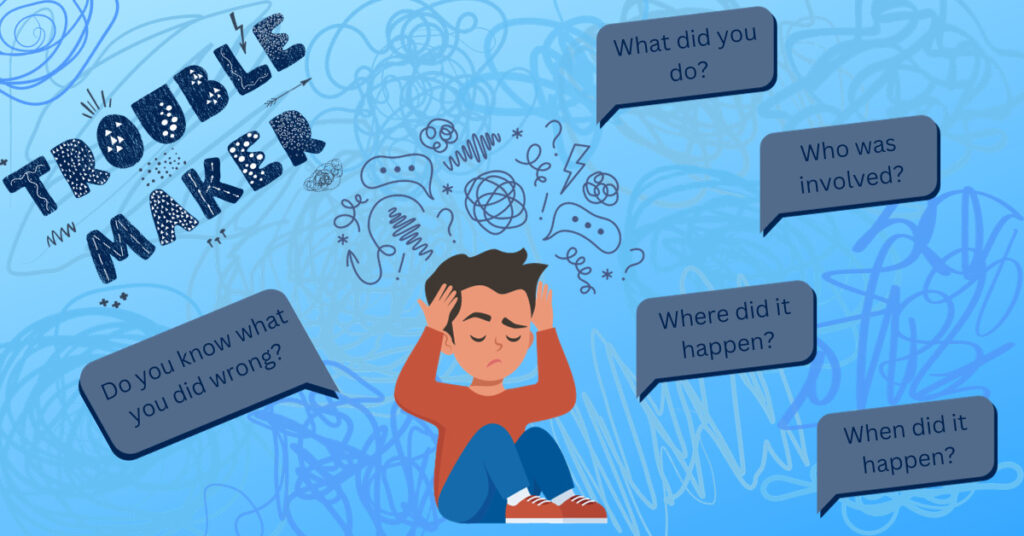When my son faced a disciplinary referral at school, the administrator and the school resource officer initiated disciplinary actions by engaging in a discussion with him without my presence. This raised concerns for me, especially considering he was a minor. Motivated by curiosity, I delved into researching the regulations surrounding the interrogation of students.

Questioning by School Officials
In many states, school officials retain the authority to interrogate students in the absence of a parent or guardian. Any statements made by the child during these interrogations may be admissible in both school disciplinary proceedings and legal cases. While individual states and school districts have their own regulations, all schools must adhere to the Fifth Amendment. This means schools must cease questioning once a student requests the presence of a parent, guardian, or legal representation. Students also possess the right to remain silent.
As outlined by NOLO, police officers, including school resource officers, also have the right to question minors without representation. Once again, the minor is entitled to exercise the right to remain silent or request the presence of a parent, guardian, or lawyer. Just like in school interrogations, any statements made to the officer can be used in a legal context.
For further insights into student questioning, refer to Make My School Safe.
Custodial Questioning
In my son’s situation, despite being an elementary schooler, his transgression had the potential to lead to an arrest. Fortunately, the officer deemed his actions not arrest-worthy. Nonetheless, had the victim’s parents chosen to press charges, the scenario could have unfolded differently. We were fortunate that such charges were not pursued. It occurred to me that had my son been in middle school, an immediate arrest would have been warranted. This thought prompted me to also research custodial questioning.
When a student is taken into custody, even within the confines of school grounds, specific legal protocols must be observed. According to NOLO and Make My Schools Safe, once detained and no longer free to leave, students should be informed of their Miranda rights. However, constitutional obligations don’t mandate the presence of a parent or guardian during questioning. Some states, however, have enacted laws stipulating the necessity of a parent or guardian—and sometimes an attorney—be present for minors before questioning.

Search & Seizure
In the incident involving my son, evidence was gathered from his bag. FindLaw highlights that the Fourth Amendment serves as a safeguard for students against unreasonable searches and seizures. Nevertheless, if there exists reasonable suspicion that a student possesses something contrary to school policy, school officials, including school resource officers, have the authority to search a student’s belongings without explicit permission.
The case of New Jersey v. T.L.O. established guidelines for school searches and seizures. Although school teachers and administrators function as representatives of students’ parents and guardians, they also act as agents of the state, making the Fourth Amendment applicable. However, the imperative of school safety and maintaining the educational environment is weighed significantly against students’ privacy rights. The primary criteria governing a school official’s authority to conduct a search and seizure are: 1) the search must be justified, grounded in probable cause, and 2) the search must be proportionate in scope to the presumed violation.

Lessons Learned
I’m certain this post raises questions about my son’s incident, and I intend to address it in a forthcoming post. Presently, my focus is on sharing the insights garnered from my experience. While I sincerely wish others never encounter a situation like my son and I did, my goal is to empower parents and students to be proactive and ready for potential disciplinary actions.
- It is crucial for children to be aware and empowered to request the presence of a parent or guardian before responding to any queries related to a school disciplinary matter, irrespective of their level of involvement.
- Children should be informed and capable of requesting the presence of a parent, guardian, or attorney when being questioned by a police officer, whether in custody or not.
- Instilling the understanding that they have the right to remain silent during questioning by a school official or police officer is vital for children.
I recommend exploring your state laws and your school district’s policies and procedures. Valuable resources include the state department of education, the student code of conduct, and school board policies. In the interim, it’s essential to educate your children about their rights as students and citizens.




